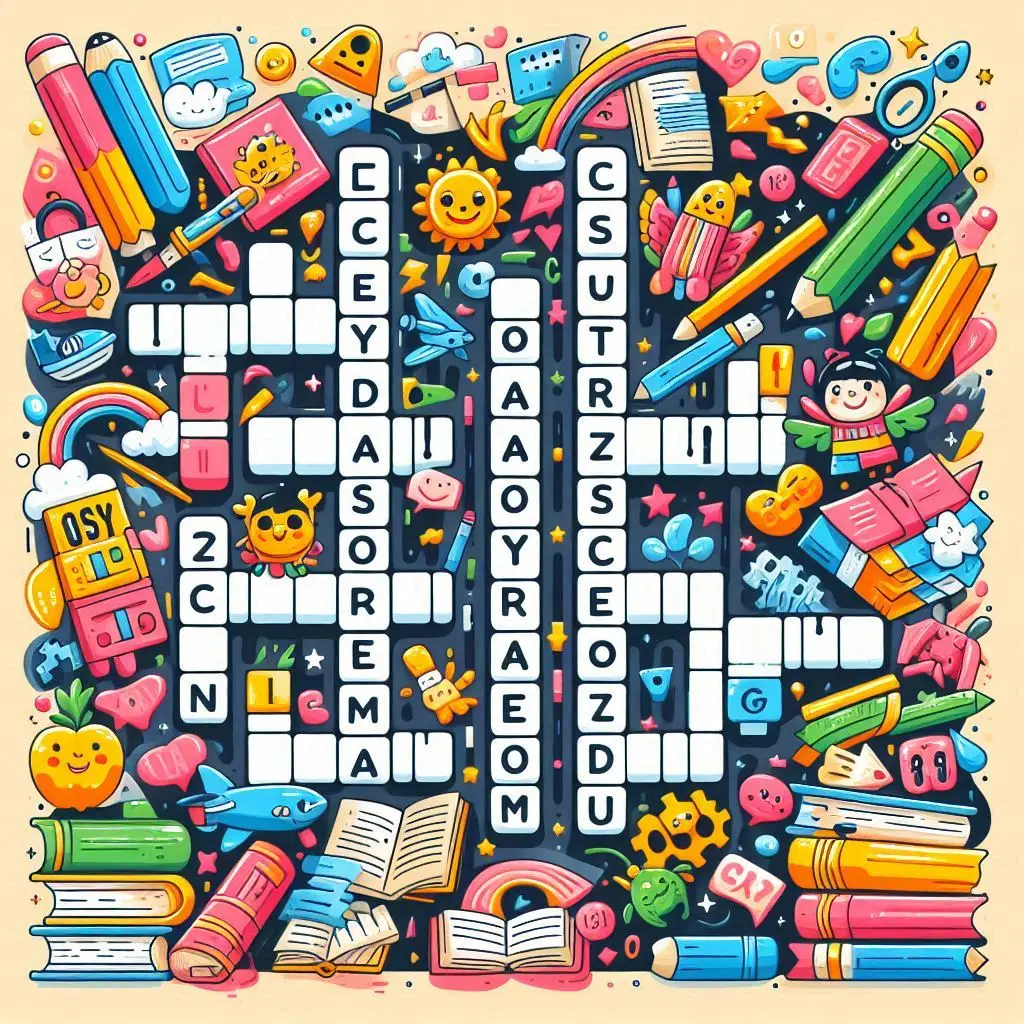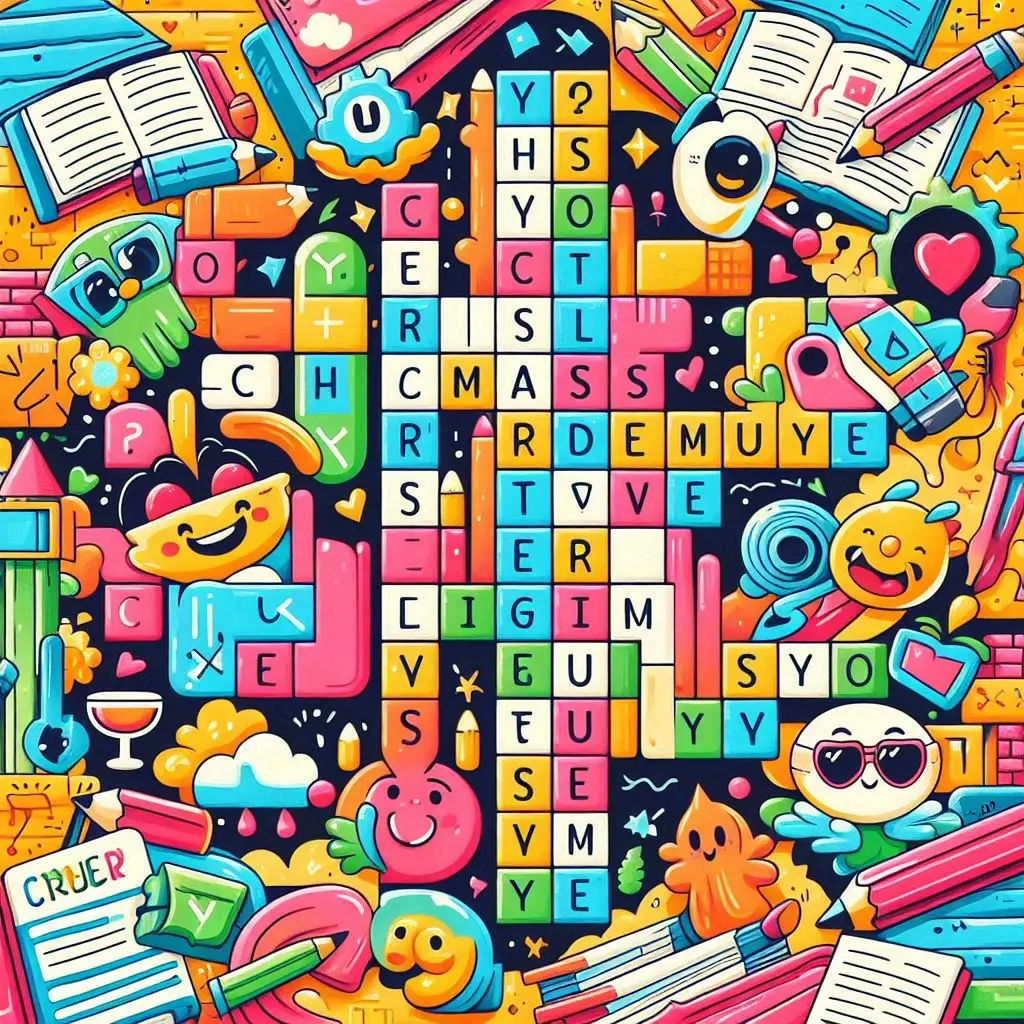Easy crossword puzzles are designed to be beginner-friendly, but even simple grids can trip up solvers. Mistakes in these puzzles often arise from rushing, overthinking, or misunderstanding clues. By recognizing the most common errors, solvers can approach puzzles more strategically, reduce frustration, and improve both speed and accuracy. Here are 9 points highlighting common mistakes in easy crossword puzzles and how to avoid them.

1. Overlooking Simple Clues
Many beginners get distracted by complex interpretations of clues, even in easy crossword puzzles. They may look for hidden meanings when the answer is straightforward.
Solution:
Read the clue carefully and consider the most literal or common interpretation first. Often, simple answers like “cat” or “sun” are correct.
Impact:
Focusing on simplicity prevents unnecessary time loss and builds confidence early in the solving process.
2. Ignoring Intersecting Words
A major mistake is filling words without considering their intersections. This leads to conflicts with letters from crossing clues.
Solution:
Always check how your answer fits with horizontal and vertical words. Use existing letters to verify correctness.
Impact:
Cross-checking prevents errors and makes subsequent clues easier to solve, enhancing overall puzzle flow.

3. Misreading Clue Types
Beginners often confuse clue formats — for example, thinking a plural clue needs a singular answer or vice versa.
Solution:
Pay attention to singular/plural forms, verb tenses, and any hints in punctuation. Easy crossword puzzles often include these subtle cues to guide solvers.
Impact:
Correct interpretation of clue types reduces repeated corrections and improves solving speed.
4. Guessing Without Evidence
Relying solely on guesswork without using intersecting letters or context can lead to mistakes.
Solution:
Use partial letters from other answers and the clue’s context to make educated guesses. Avoid filling in words without supporting evidence.
Impact:
Logical guessing keeps errors minimal and maintains the integrity of the puzzle grid.
5. Overcomplicating Solutions
Solvers sometimes assume answers must be tricky or unusual, especially when a clue seems too simple.
Solution:
Remember that in easy crossword puzzles, the creators aim for accessible solutions. Trust your first instinct for straightforward words.
Impact:
Keeping it simple saves time and reduces frustration from second-guessing obvious answers.
6. Not Using Categories or Themes
Many beginner puzzles are thematic, and ignoring categories can make clues harder to solve.
Solution:
Identify patterns or themes — like animals, colors, or seasons — to guide your guesses. The context often narrows down possible answers.
Impact:
Recognizing themes increases efficiency and makes the puzzle more enjoyable.
7. Filling Words Too Early
Rushing to complete a word without enough letters or cross-checking can lead to cascading errors across the grid.
Solution:
Fill only the answers you are confident about initially. Leave uncertain words blank until intersecting letters provide more information.
Impact:
This method prevents mistakes from multiplying and keeps the solving process smooth.
8. Ignoring the Benefits of Skipping
Beginners often insist on solving each clue sequentially, which wastes time when stuck.
Solution:
Skip difficult clues and return later once other words offer hints through intersections.
Impact:
Skipping strategically keeps momentum and reduces frustration, making easy crossword puzzles faster and more enjoyable to solve.
9. Neglecting Practice and Reflection
Many mistakes arise simply from inexperience. Skipping practice or ignoring previous errors slows improvement.
Solution:
Regularly solve easy crossword puzzles, review mistakes, and note recurring tricky clue types.
Impact:
Consistent practice strengthens vocabulary, pattern recognition, and clue interpretation, gradually minimizing errors.
Even in easy crossword puzzles, solvers encounter pitfalls that can slow progress or cause frustration. Common mistakes include overcomplicating clues, ignoring intersections, guessing without evidence, and neglecting practice. By focusing on clarity, cross-checking, clue types, and themes — while practicing patience and reflection — solvers can avoid these errors.
Understanding and addressing these nine points transforms easy crossword puzzles from a casual pastime into an effective tool for mental agility, vocabulary growth, and problem-solving skills. With mindful strategies, even beginners can enjoy faster, more accurate, and more satisfying puzzle-solving experiences.